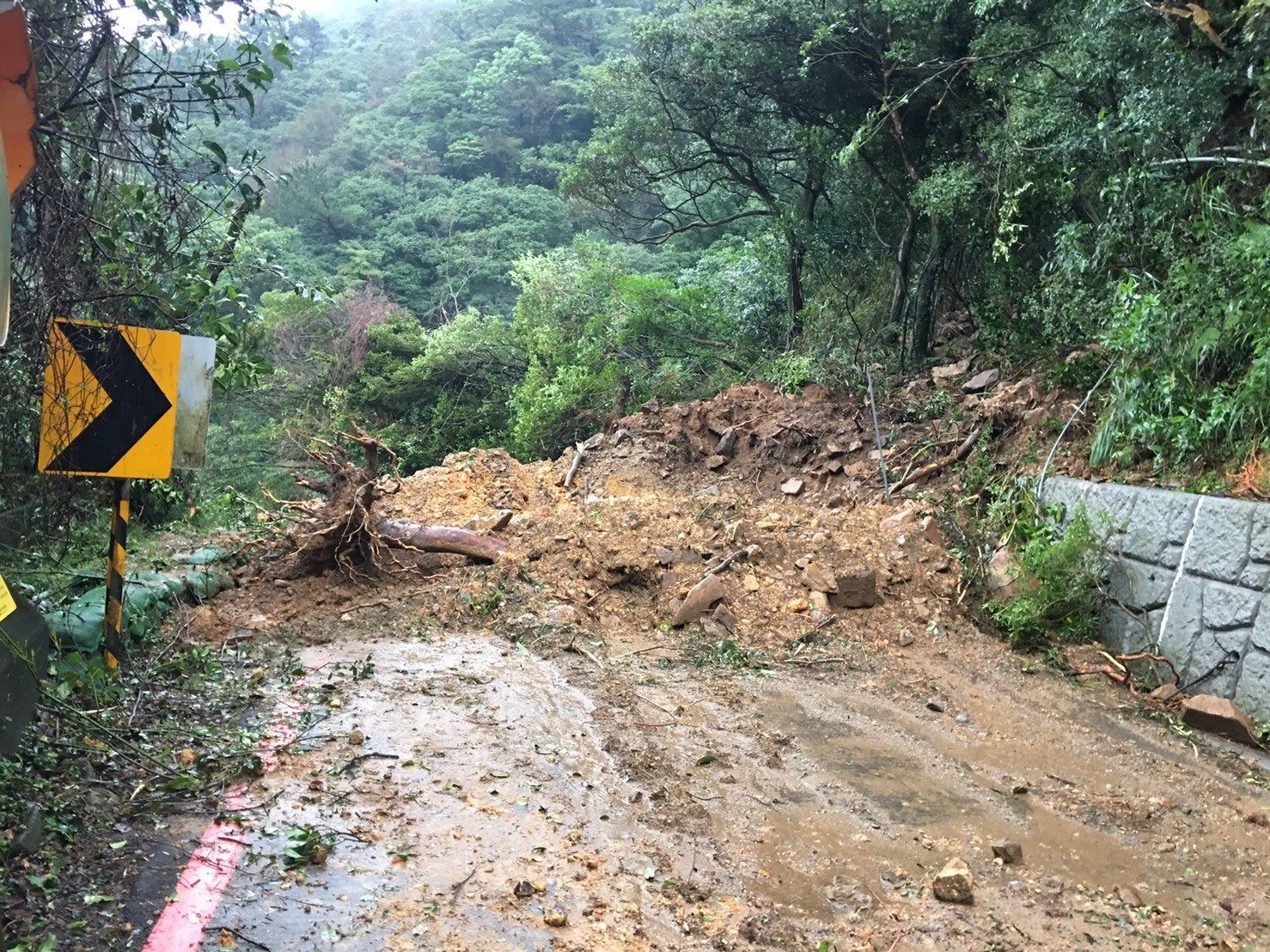City Pulling out All the Stops to Reopen Bailaka Road Before Jan. 31
 The Bailaka Road – linking Yangjin Highway in Beitou District, Taipei City to northern Xinzhuang in New Taipei City – was closed on December 6 as a result of a collapsed upper slope due to sustained torrential rains.
The Bailaka Road – linking Yangjin Highway in Beitou District, Taipei City to northern Xinzhuang in New Taipei City – was closed on December 6 as a result of a collapsed upper slope due to sustained torrential rains.
The New Construction Office (NCO) of the Taipei City Government’s Public Works Department urgently dispatched machinery and equipment to restore the road, which was opened on December 7. However, in light of the instability of the upper/lower slope and roadbed, the road is only open to emergency and official vehicles for safety reasons. The NCO is currently conducting emergency slope repair operations, aiming to reopen the road by January 31, 2020.
According to NCO Road Maintenance Section Chief, Wang Chih-Liang, although the Bailaka Road was opened on December 7, the slope and roadbed were still unstable due to frequent rains in the mountain region. Moreover, the collapsed road section measures approximately 44m, together with the upper/lower slope (92m), the area requiring restoration is approximately 2,272m2 and the collapsed volume is roughly 2,185m3, larger than the area of 5 basketball courts, highlighting the magnitude and difficulty of the restoration project.
According to meteorology data from the Central Weather Bureau, there is frequent rainfall in the vicinity of the Bailaka Road, with rainfall occurring at least 6 months out of 12 months in a year. Furthermore, the mountain region has an elevation of 825m and a temperature of 5 degrees Celsius less than that of the ground level; for example, the level ground temperatures at night on 12/7 was about 12 to 13 degrees Celsius, but road maintenance workers on the mountain had to endure 6 degree Celsius weather and rain to restore the road. They also had to conduct high altitude rappelling in heavy fog and ensure that all safety measures are in place before carrying out repair operations including slope cutting, netting, and installation of rock dowels to stabilize the slope surface, as well as to drill holes in the mud in order to install micropiles in order to reinforce the roadbed. The adverse working conditions further increased the difficulty and danger of the construction work; thus, they have their work cut out for them.
The NCO emphasizes that it will pull out all the stops to reopen the Bailaka Road as soon as possible. However, it is still closed to the public for now, so road users are asked to use alternate routes. We apologize for any inconvenience caused and thank you for your understanding.

![Taiwan.gov.tw [ open a new window]](/images/egov.png)
